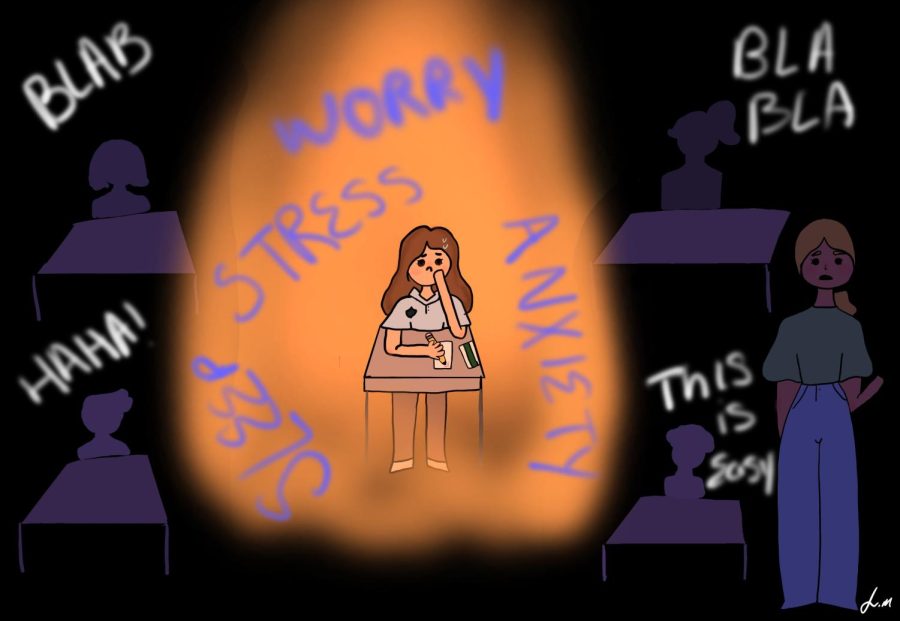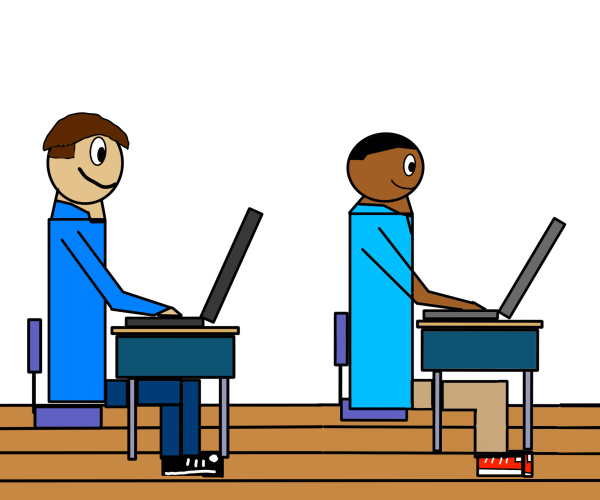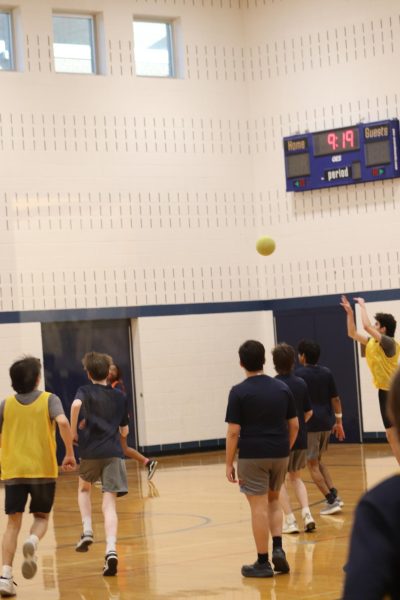Brain break required by law
Amendment raises questions about mental health in schools
Mental health is no joke—even the Illinois government agrees. In August, Governor J.B. Pritzker signed Senate Bill 1577 into law, which amends the Compulsory Attendance Article of the School Code.
The law allows for students to have a maximum of five mental health days in a school year. To avoid abuse of this policy, it states that the school must offer the student counseling resources after the second mental health day is taken. This is a clause in the bill that many are unaware of.
State schools must follow this new law, but parochial schools and private institutions are given the option whether or not to implement this policy. Saint Viator is one of these schools.
Since the beginning of the COVID-19 pandemic, mental health has become a greater concern for all—especially for students. Anyone already struggling with anxiety, depression, and other target disorders likely have faced an increase in mental instability, not to mention those who were previously free of these burdens and who have now gained unprecedented pressures from these trying times.
“The pandemic has definitely placed mental health in the forefront,” said Interim Director of Counseling and School Counselor Mr. Michael Leahy.
Mental health has become a priority not only in our school community, but in our society altogether. Many public schools in the area have student populations of 2,000 or more and access to proper counseling resources, yet schools in other parts of the state often have only one counselor or social worker for the entire school.
“I think if the state is willing to say this, then they need to make it so that schools can have more mental health professionals in the building,” said Mr. Leahy.
At Saint Viator, mental health has always been a priority for students and faculty alike. Not only do students and teachers have access to an extensive counseling program, but the loving environment of Catholic morality allows for staff and Viatorian residents to act as engaging mentors as well.
“Body, mind, and spirit are all connected,” said Fr. Dan Lydon, CSV, the current president of Saint Viator. “We talk about educating the whole person at Saint Viator.”
Many students feel the need to offer additional days off is not exactly a bad decision, but an unnecessary implementation.
“Right now, we can already have excused absences,” said senior student council member Michael Corliss. “I don’t think it needs to be mandated by law. If your parents called you in it would be an excused absence regardless.”
“I would say a normal, everyday person might need one or two days to just breathe,” said Fr. Lydon. “We have never penalized people for doing what they have to do for their mental health.”
Some also worry that the system will be taken advantage of. However, the promise of checking in on the absent student’s mental state once a second day is taken offers some reassurance to the risked malleability of the system. With a licensed professional certified to connect with the student, the uncertainty of kids “faking it” can be eliminated.
“I worry if they would abuse it or not take it seriously,” said science teacher and head of STEM program Mrs. Rachel Mroz. “A mental health day is for you to regain how much you need to do and get you in the right mental space to be at school.”
Students are not exempt from work and they should treat mental health days in the same manner as sick days. Therefore, work cannot just be skipped for the means of having a day at home.
“If students are taking those mental health days, they have to become advocates for themselves by emailing or talking to their teacher…about what they missed,” said Mrs. Mroz.
With teachers like Mrs. Mroz not only working in several school departments but even in extra-curriculars, they know that students can be overloaded and occasionally need some time to take off and catch up. With this, the biggest fear is that students will not use this time to catch up, and will merely utilize this extra resting period to slack off and arbitrarily miss school.
Talk about students’ mental health has raised a question: should teachers have mental health days by law?
According to the faculty, teachers are given eight sick days and two personal days per school year. These days, of course, can be taken for mental health issues, so adding an additional five may be extreme.
“It’s really hard for teachers to take a day because it’s easier for us to be here than it is for us to be at home,” said Mrs. Mroz.
Unlike students, teachers have familial responsibilities at home. From being a dedicated parent to constantly keeping the house in order, staff members have a multitude of expectations to keep up with, so a day to fully decompress would be ultimately beneficial.
“A teacher is always needed at home as a parent and at school as there is always somebody asking them something,” said Mrs. Mroz. “[A real mental health day] would be very nice…a chance to be alone. There have been some circumstances in the past few months where it would be great to have some time.”
While Viator is not going to implement this law in its entirety, there is a plan to find new ways to help students take care of their mental health.
“Next year, I want to start a social-emotional wellbeing commission,” said Fr. Lydon. “We would have our nurse involved, we would have Mrs. [Ann] Perez, [Assistant to the President for Mission]…we would have students involved in it to surface ideas…We would have counseling, campus ministry, and parents, too.”
This commission would begin finding new ways to assist students who are struggling with anxiety, stress, and other mental health crises.
“I’m hoping that if we had a commission of some sort or a group to dialogue, maybe they could surface ideas about how to help the young people in school,” said Fr. Lydon. “We want to try to find a way to help the kids because that’s what [Mr. Steve Burks] used to say, ‘What’s the best thing for the kids?’”
Your donation will support the student journalists of Saint Viator High School. Your contribution will allow us to purchase equipment and cover our annual website hosting costs.







